Events
The events below are populated from several external sites that publicize grant events relevant to organizations like yours. We also have internal events from Kuja. Use the filters to explore the events that are interesting to you and apply to those that you want to attend!
- Adult Welfare
- Adult Welfare
- Animal Welfare
- Animal Cruelty
- Animal Experimentation
- Animal Rights
- Animal Welfare
- Arts & Culture
- Art
- Art Conservation
- Arts & Culture
- Culture
- Curating
- Documentary Making
- Film
- Galleries
- Games
- History
- Humanities
- Libraries
- Literature
- Museum
- Music
- Performing arts
- Podcasting
- Poetry
- Public arts
- Storytelling
- Visual arts
- Children & Youth
- Child Abuse
- Child Development
- Child Neglect
- Child Nutrition
- Child Participation
- Child Protection
- Child Rights
- Child Soldiers
- Child Survival
- Children & Youth
- Children with Disabilities
- Children’s Education
- Children’s Health
- Early Childhood Development and Education
- Early Marriages
- Orphans & Vulnerable Children
- Research
- School Health
- Sexual and Gender-Based Violence
- Youth
- Youth Economic Empowerment
- Youth Empowerment
- Youth Engagement
- Youth Leadership
- Youth Participation
- Youth Policies
- Youth Representation
- Youth and Climate Change
- Climate Change
- Agroforestry
- Biodiversity
- Biodiversity and Ecosystems
- Carbon Credits
- Chemical Risks
- Climate Adaptation
- Climate Change
- Climate Financing
- Climate Mitigation
- Climate Policy
- Climate Research
- Climate Resilience
- Conservation
- Decarbonization
- Desertification
- Droughts
- Early Warning Systems
- Eco-Friendly Production
- Eco-tourism
- Emerging Technologies
- Emission Reduction
- Environment
- Environmental Justice
- Environmental, Social and Governance
- Forest Management/ Conservation
- Fossil Fuel Management
- Grassroots Climate Response
- Habitat Restoration
- Hazardous Waste
- Invasive Species Control
- Just Energy Transition
- Land Degradation
- Land Restoration
- Marine conservation
- Mountain Ecosystems
- Mountains
- Natural Resource Management
- Ocean Conservation
- Rangelands
- Recycling
- Reforestation
- Renewable Energy
- Sea Conservation
- Sewage Management
- Solid Waste Management
- Sustainable Fashion
- Sustainable Tourism
- Sustainable Use
- Tree Planting
- Urban Green Infrastructure
- Urban Sustainability
- Waste Collection
- Waste Management
- Water Management
- Water Pollution
- Wildlife Conservation
- Communications and Advocacy
- Advocacy
- Communications
- Communications and Advocacy
- Media
- Storytelling
- Community Development
- Community Development
- Education
- Adult Literacy
- Alternative Education
- Digital Literacy
- Early Childhood Development and Education
- Education
- Education Policy
- Education Research
- Education Technologies
- Education Workforce
- Education in Emergencies
- Foundational Learning
- General Education
- Girls’ Education
- Higher Education
- Inclusive Education
- Information and Communication Technology
- Language Education
- Natural Sciences
- Post-Secondary Education
- Primary Education
- School Supplies
- Science, Technology, Engineering, and Mathematics
- Secondary Education
- Skills Development
- Social and Emotional Learning
- Social and Human Sciences
- Technical / Vocational Training
- Elderly
- Age Discrimination
- Elderly
- Elderly People
- Healthy Ageing
- Older People Rights
- Food and Agriculture
- Agricultural Machinery
- Agricultural Research
- Agriculture
- Agro Ecology
- Agroecology
- Farmer’s Rights
- Fishing
- Food Aid
- Food Feminism
- Food Policies
- Food Security
- Food Sovereignty
- Food Systems
- Food Systems Research
- Food Value Chains
- Food and Agriculture
- Genetically Modified Crops
- Irrigation Systems
- Markets and Trade
- Organic Farming
- School Feeding
- Seed Systems
- Soil Health Improvement
- Sustainable Agriculture
- Sustainable Farming
- Gender Equality
- Discriminatory Policies
- Domestic Workers
- Early Marriages
- Early Pregnancy
- Feminism
- Gender
- Gender Equality
- LGBTQIA+ Equality
- Leadership at Work
- Legal Protection
- Maternal and Child Healthcare
- Research
- Sex Work
- Sexual and Gender-Based Violence
- Sexual and Reproductive Health Rights
- Women & Girls
- Women and Girls in STEM
- Women with Disabilities
- Women’s Decision Making
- Women’s Empowerment
- Women’s Health
- Women’s Leadership
- Women’s Livelihoods
- Women’s Public Participation
- Women’s Representation
- Women’s Rights
- Governance
- Activism
- Democracy
- Diplomacy
- Elections
- Foreign Policy
- Governance
- National Security
- Political Movement
- Public Policy
- Healthcare
- Autoimmune Diseases
- Basic Care
- Chronic Illnesses
- Communicable Diseases
- Community Health
- Critical Illnesses
- Disability Healthcare
- Disease Surveillance
- Environmental Health
- Epidemiology
- Family Planning
- Food Safety
- HIV/AIDS
- Health Financing
- Health Promotion
- Healthcare
- Healthcare Technologies
- Hunger Alleviation
- Immunization
- Infectious Diseases
- Malaria
- Maternal Health
- Maternal and Child Health Care
- Maternal and Infant Health Care
- Menstruation
- Mental Health
- Neglected Tropical and Vector-Borne Diseases
- Newborn Health
- Non-Infectious Diseases
- Noncommunicable Diseases
- Nutrition
- Obesity
- Oral Health
- Pandemic
- Physical Health
- Primary Health
- Public Health
- Reproductive Health
- Research
- Road Safety
- Sexual Health
- Sexual and Reproductive Health and Rights
- Sexually Transmitted Infections (STIs)
- Sickle Cell Disease
- Soil-Transmitted Helminth Infections
- Substance Abuse
- Traditional Medicine
- Tuberculosis
- Vaccines
- Water, Sanitation and Hygiene
- Human Rights and Social Justice
- Child Protection and Welfare
- Civic Engagement
- Civil Society
- Disability Rights
- Disadvantaged Communities
- Diversity, Equity and Inclusion
- Economic Justice
- Ending Abuse
- Female Activists
- Gender-based Violence
- Human Rights
- Human Rights and Protection
- Human Rights and Social Justice
- Human Trafficking
- Indigenous Rights
- LGBTQ+ Rights
- Racial Justice
- Refugee Rights
- Research
- Sexual Exploitation and Abuse
- Social Action
- Social Justice
- Youth Rights
- Humanitarian Aid
- Asylum Seekers
- Camp Management
- Cash-Based Transfers
- Climate-Smart Disaster Risk Reduction
- Conflict Areas
- Detainees
- Disaster Management
- Disaster Relief
- Disaster Risk Preparedness and Response
- Disaster Risk Reduction and Recovery
- Displacement
- Early recovery
- Economic Recovery
- Emergency Response
- Essential Services
- Forced Displacement
- Healthcare in Emergencies
- Humanitarian Aid
- IDP Settlements
- International Humanitarian Law
- Medical Commodities
- Migration
- Natural Disasters Response
- Prisoners of War
- Protection
- Reconnecting Families
- Refugee Registration
- Relief Assistance
- Research
- Resettlement
- Resilience Building
- Rights of People in Conflict
- Shelter
- Torture Survivors
- Urban Refugees
- Water, Sanitation and Hygiene
- survivor-led community-based response (sclr)
- Leadership
- Leadership
- Leadership Building
- Leadership Mentorship
- Leadership Training
- Localization and Decolonizing Aid
- Decolonizing Aid
- Decolonizing Bilaterals
- Decolonizing INGOs
- Decolonizing Multilaterals
- Decolonizing Philanthropy
- Localization
- Localization and Decolonizing Aid
- Locally-Led Development
- Shifting Power
- Other
- Other
- Peace
- Community Security
- Conflict and Gender Sensitivity
- Inclusive Governance
- Peace
- Peace and Reconciliation
- Peacebuilding
- Peacekeeping
- Security
- Philanthropy , Giving and Development Aid
- Bilateral Aid
- Charity
- Community Philanthropy
- Development Aid
- Giving
- Individual Donations
- Multilateral Aid
- Philanthropy
- Philanthropy , Giving and Development Aid
- Religious Giving
- Social Entrepreneurship
- Social Impact
- Social Impact Investment
- Volunteering
- Poverty, Livelihoods & Economic Development
- Agribusiness
- Business Growth Programs
- Cash Programming
- Economic Development
- Economic Growth
- Economic and Social Development
- Economic and Social Inequalities
- Enterprise Development
- Entrepreneurship
- Extreme Poverty
- Financial Inclusion
- Income Generation Activities
- Income Security
- Inequity
- Informal Settlements
- Job Creation
- Job Skills Training
- Livelihood Development
- Livelihoods
- Loans
- Microfinance
- Poverty
- Poverty Alleviation
- Poverty, Livelihoods & Economic Development
- Private Sector Engagement
- Research
- Rural Development
- Safe Housing
- Savings
- Social Care
- Social and Economic Advancement
- Trade and Investment
- Underprivileged Communities
- Vulnerable People
- Women’s Entrepreneurship
- Workforce Development
- Public Safety
- Community Resilience
- Conflict Resolution
- Crime Prevention
- Homelessness
- Housing
- Infrastructure Development
- Legal Services
- Public Safety
- Religious Activity
- Church
- Church Outreach
- Church-Based
- Faith-Based Service Delivery
- Interfaith Cooperation
- Interfaith Dialogue
- Religious Activity
- Seva
- Waqf
- Zakat
- Renewable Energy
- Clean Cooking
- Clean Energy
- Electricity
- Emissions Reduction
- Energy Financing
- Energy Transition
- Geothermal Energy
- Green Energy
- Industry Decabornization
- Off-Grid Renewable Energy
- Public Financing
- Research
- Solar Energy
- Wind Energy
- Science, Information and Communication Technology
- Artificial Intelligence
- Biology
- Blockchain
- Digital Products
- Earth Sciences
- Engineering
- Free Internet
- Health Sciences
- Internet Access
- Internet Connectivity
- Internet of Things
- Safe Internet
- Science, Information and Communication Technology
- Science, Technology, Engineering, and Mathematics
- Sciences
- Software and IT
- Telecommunications
- Website Development
- Sports and Recreation
- Equal Play
- Sports and Recreation
- Sports for Development
- Sustainable Development
- Sustainability
- Sustainable Development
- Sustainable Improvements
- Water, Sanitation and Hygiene
- Adequate Sanitation
- Clean Water
- Development Water, Sanitation and Hygiene
- Emergency Water, Sanitation and Hygiene
- Proper Hygiene Practices
- Public Health Water, Sanitation and Hygiene
- Safe Drinking Water
- Safe Water
- Urban Water, Sanitation and Hygiene
- Water Access
- Water Management
- Water Resilience
- Water, Sanitation and Hygiene
In this webinar, three young activists will discuss the strategies and responses of youth-led organizations to the current crises of the "aid" system, focusing on their strengths, lessons learned, and perspectives on the future of aid. They will share their lessons learned in advocating for youth’s rights, especially in recent months; key messages and recommendations for donors; and advice for other youth-led NGOs navigating the crises.
This webinar is aimed at a general international "aid" audience interested in children's rights and youth-led organizations, including donors and funders, researchers, practitioners, graduate students, community-based and national NGOs, INGOs, and more.
Based on their experiences, three young leaders and activists will discuss:
Adaptation strategies by youth-led organizations facing funding cuts
Leveraging entrepreneurship as a tool to sustain youth-led initiatives and community empowerment in the face of funding gaps
Rise of anti-migrant and anti-refugee narratives, and the effects of displacement on youth-led organizations working with migrant, refugee, and host communities
Recommendations for international donors and funders on how to better support youth-led organizations
Suggestions to achieve the meaningful inclusion of youth-led organizations in decision-making processes
Attendees are encouraged to submit questions for the speakers in advance (in English or Spanish) to mara.luna@kuja.org.
This event is co-sponsored by the Collaborative on Global Children's Issues, Georgetown University and Global Fund for Children.
Speakers
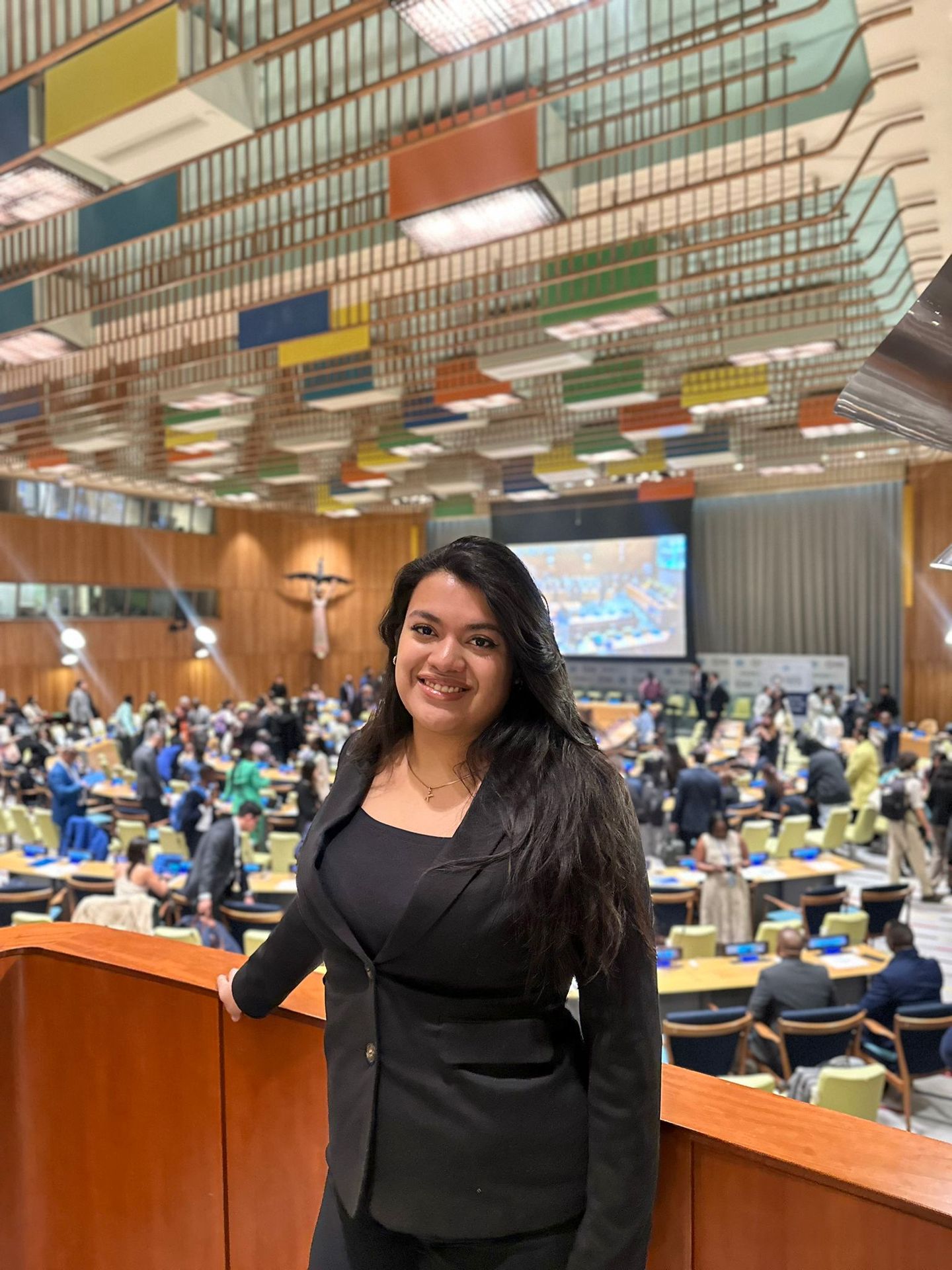
Krista Rivas Gutiérrez Global leader, Tertiary Refugee Student Network (TRSN)
Krista Rivas Gutierrez is a student of architecture and international relations, a DAFI scholarship recipient, and the Global Lead of the Tertiary Refugee Student Network (TRSN), where she works to strengthen youth leadership and advocate for policies that expand opportunities for displaced students. Her work focuses on amplifying the voices of displaced youth and ensuring that their stories, challenges, and contributions are recognized in global decision-making spaces. With a strong background in youth-led initiatives, Krista has actively promoted access to higher education, economic empowerment, and meaningful participation of young refugees and displaced persons. Krista has represented youth at high-level international forums. Through advocacy, public speaking, and media engagement, she helps reshape the narrative around displaced youth—not as victims, but as change-makers leading solutions in their communities.
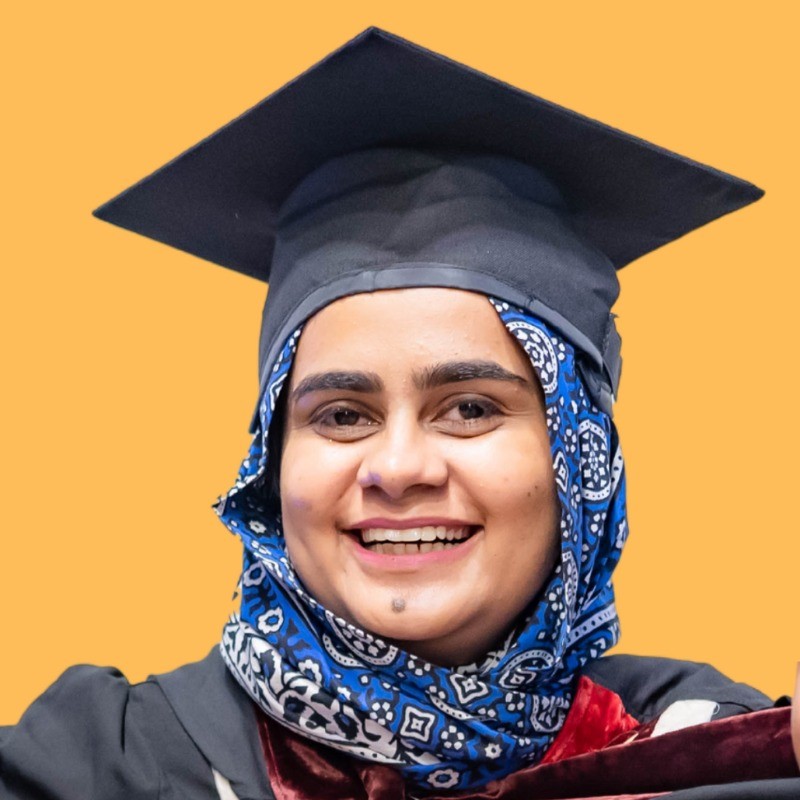
Wardah Noor - Founder & CEO xWave Pakistan
Wardah Noor is a social entrepreneur and the founder of xWave Pakistan, an initiative that leverages technology to empower marginalized communities. Her work focuses on training underserved youth—especially women in rural areas—in employable IT and soft skills. Under her leadership, xWave has expanded across multiple regions, training over 300 students in technical skills and thousands more in essential workplace competencies. Recognized with the Prime Minister's Youth Excellence Award and honored by international platforms such as Giving Tuesday and the Global Fund for Children, Wardah’s commitment to inclusive digital education is transforming lives. She aims to train and place 10,000 students into the workforce, contributing meaningfully to Pakistan’s digital economy.
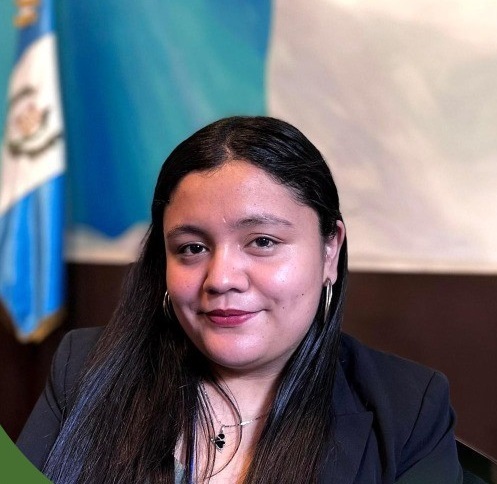
Kimberly Barrios - Vice-president Jóvenes Artistas por la Justicia Social (JAJS), Guatemala
Kimberly is an internationalist, youth leader, and project manager with over five years of experience in volunteer work and political advocacy through citizen participation spaces. She is Vice President and co-founder of Jóvenes Artistas por la Justicia Social (JAxJS), a youth-led NGO, and a member of the UNFPA Youth Advisory Group. She also serves as a Young Peacebuilder with the United Nations Alliance of Civilizations (UNAOC). Her work focuses on youth empowerment, leadership training, and network-building, with a strong emphasis on strategic partnerships to advance social justice and sustainable development goals.
Moderator: Mara Tissera Luna, KujaLearn Content Advisor.
Date and time: June 12, 2025
- Mexico City, Mexico/Guatemala City – 10:00 AM
- New York, USA – 12:00 PM
- Buenos Aires, Rio de Janeiro – 13:00
- London, UK – 16:00
- Geneva, Madrid 17:00
- Cape Town, South Africa – 18:00
- Nairobi, Kenya – 19:00
- Islamabad, Pakistan: 21.00
- Delhi, India – 22:00
Duration: 1 hour and 15 minutes – Language: English and Spanish with live interpretation into both languages.
As International Funders and Donor Countries, including the U.S. are stepping away from global cooperation, dynamic community-led Global South organizations are showing us the way to inclusive and effective community development and resource mobilization. FEM in Colombia has been working with Afro-Colombian and Indigenous communities for over a decade to reclaim their lands, pursue their dreams and build their communities. Join us to learn more about this model community-driven organization and its successful funding diversification model. This is an in-depth conversation with Ana Maria Gonzalez, FEM's Co-Founder. Translation in Spanish and French will be available.
Speaker
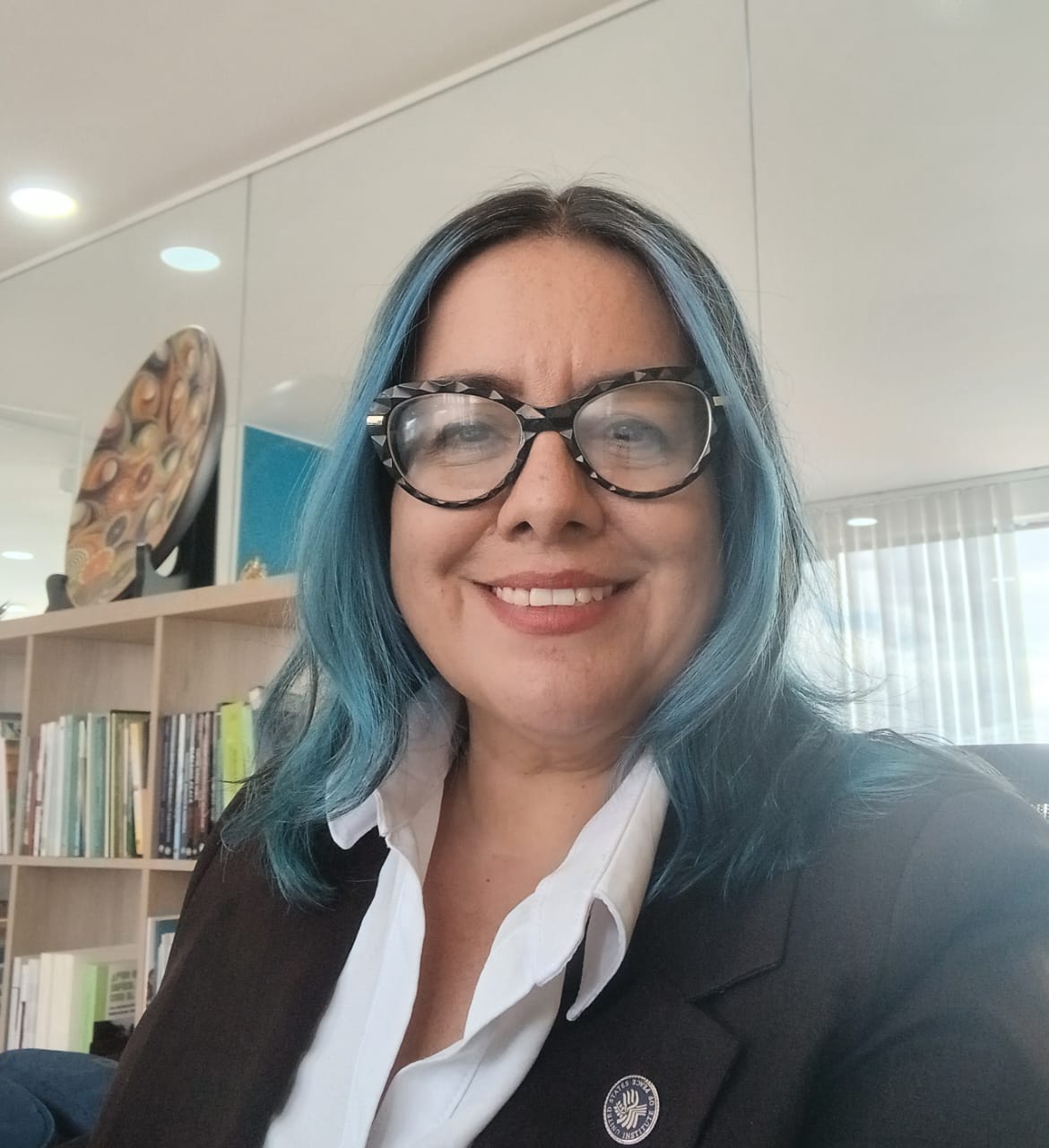
Ana Maria Gonzalez-Forero
Cofounder - FEM Colombia
Ana Maria is Colombian political scientist & mother of 2. Co-founded FEM (2007), securing land rights for 20,000 Afro-Colombians in 17 years via participatory models & social enterprises. Obama Scholar '18. Served Cartagena Gov't, tackling displacement & exploitation. Now with Voces Nuevas, advocating for Global South inclusion & a new world order.
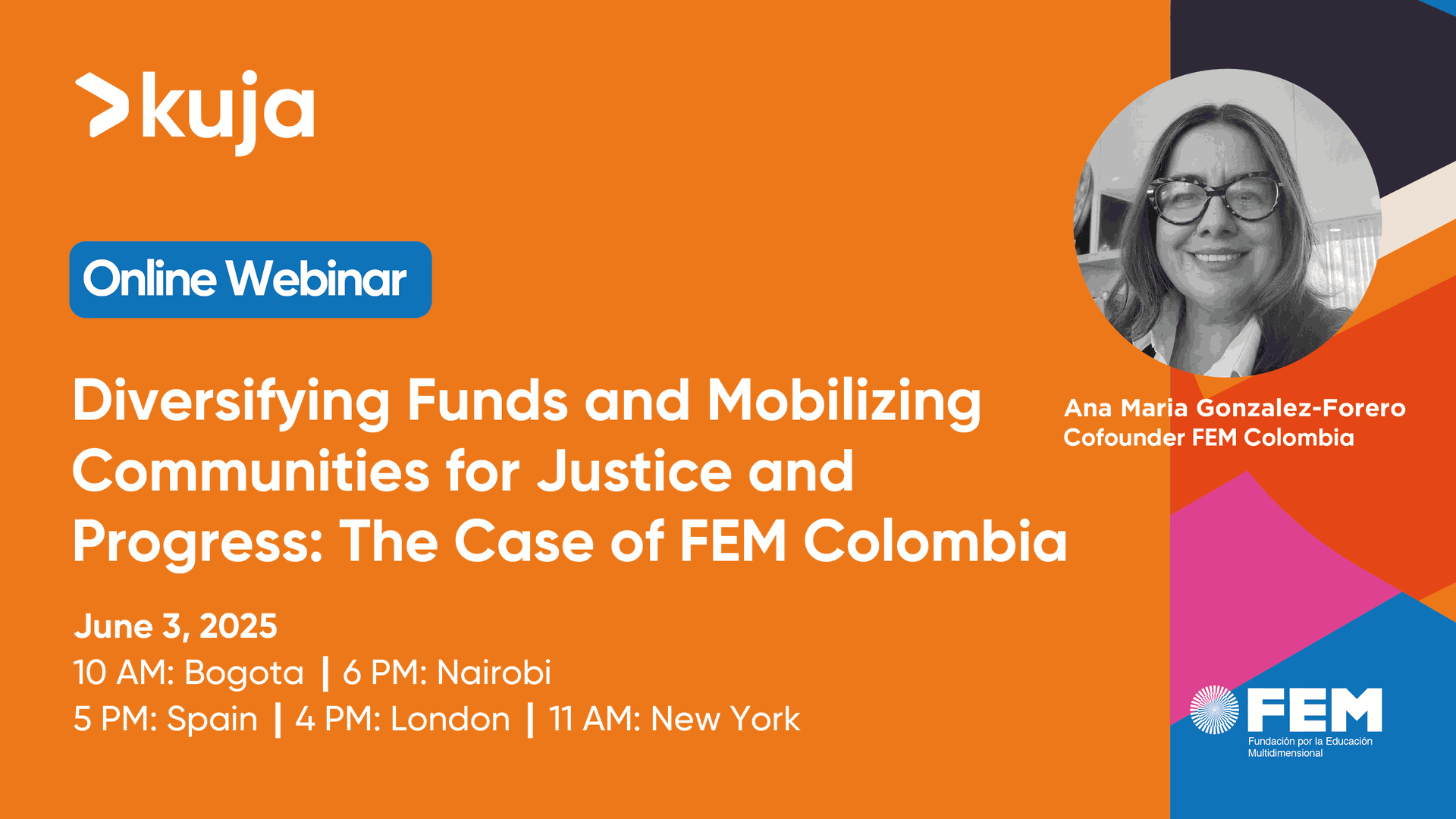
A virtual gathering brought together voices from across Latin America to reflect on the region’s philanthropic future.

On April 23, Kuja Platform, an initiative by Adeso, organized a webinar addressing the current challenges of philanthropy in Latin America, featuring key voices from the sector. Participants included Juliana Tinoco, Executive Coordinator of the Socio-Environmental Funds of the Global South | Alianza Fondos del Sur, along with representatives from two member funds, Juan Mira (Fondo Emerger – Colombia) and Facundo Ibarlucía (Red Comunidades Rurales – Argentina), as well as Jonathas Azevedo, Executive Director of Rede Comuá (Brazil).
In a time of profound transformations in international cooperation financing, this webinar aimed to initiate an urgent conversation about the present and future of philanthropy in Latin America. The closure of the Inter-American Foundation (IAF) and the near-total withdrawal of the United States Agency for International Development (USAID) have highlighted the fragility of traditional cooperation models and the need to build new ways to sustain community work.
Throughout the meeting, participants outlined a critical yet hopeful panorama, emphasizing the urgent need to transform the philanthropic system by recognizing the prominence of local solutions and advocating for a real redistribution of power.
The Critical Context of Philanthropy in Latin America
Juan Mira opened the webinar by providing a historical perspective on the successive crises of international cooperation and how these have shaped the field of civil society in recent decades. Drawing from his experience, he highlighted that, although the current crisis is severe, it is not unprecedented, mentioning moments such as post-Rio 92 and the early 2000s, when significant changes in funding flows demanded reinvention and articulation. For him, we are now facing the exhaustion of a centralizing model, which requires recognizing new actors, rethinking modes of operation, and strengthening collective platforms.
Fondo Emerger team presenting the organization and the terms of the Amazonía Resiliente project call in Colombia. Photo: Fondo Emerger Archive.
“Did we need this crisis to act? Or can we seize it to reposition new actors?” he questioned. Juan also emphasized the importance of collective actions over individual ones to transform reality and context, promoting coordination and collaboration among organizations and ensuring the representation of diverse actors.
Facundo Ibarlucía highlighted the powerful collective effort of Latin American organizations in response to the abrupt interruption of international cooperation by the United States. Faced with contract suspensions and demands for resource returns, more than 160 organizations autonomously organized, sharing experiences, conducting diagnostics, mapping impacts, and creating joint responses that enable sustainability alternatives. A phrase from his intervention encapsulates the gravity of the scenario: “More than 60% of the surveyed organizations reported being at risk of disappearing due to contract cancellations.” His call was clear: it is urgent to build greater resilience in the Global South in the face of turbulences imposed by external decisions.
Juliana Tinoco and Jonathas Azevedo presented the Alianza and the Comuá Network as alternatives to traditional international cooperation financing models. They emphasized the importance of local and decolonial funds in addressing the climate crisis and inequality, stressing the need for philanthropy based on solidarity and deep listening to communities. Both underscored the importance of prioritizing historically marginalized groups and strengthening the autonomy of civil society organizations.
Seminars for rural communities, organized by the Banco de Proyectos Comunitarios Rurales (BPCR) of Red Comunidades Rurales, foster active participation and collective learning.
Juliana Tinoco proposed a profound reflection on the current moment. For her, the crisis we are experiencing is not only financial or climatic but also political, value-based, and imaginative. Juliana highlighted how, in Latin America, neoliberalism weakened community solidarity practices and suggested recovering ancestral philosophies like "buen vivir" to face the current crisis. She pointed out that, even in the face of climate urgency, international philanthropy continues to reproduce colonial logics, with centralized power structures, scarce direct resource transfers, and a relationship often evidencing a lack of trust.
In response, she highlighted the transformative role of local funds, which reverse this logic by acting closely, listening to and understanding the demands emerging from territories, reducing and adapting bureaucracy to local realities, and offering technical, political, and financial support in local currency. “The solution to the funding gap will not come solely with more money; it will come with a new way of doing philanthropy,” she affirmed, calling on global foundations and international cooperation to commit to a true redistribution of power.
Jonathas Azevedo provided the Brazilian perspective from Rede Comuá, emphasizing how local funds emerged in response to the withdrawal of international cooperation and the absence of a structured national philanthropy supporting civil society. He noted that these funds are strategic, as they not only channel resources but also strengthen community autonomy and act swiftly in crises.
As an example, he mentioned the work of Fundo Casa Socioambiental with indigenous and community brigades during forest fires in Brazil. “These funds not only make resources viable but propose new foundations for a cooperation system that truly centers the communities and groups we work with in Brazil,” he affirmed, calling for collaboration and solidarity.
Jonathas Azevedo (Comuá Network) and Juliana Tinoco (Alianza Fondos del Sur) at an official COP29 event, highlighting the urgency of mobilizing resources toward locally-led solutions. Photo: Green Africa Youth Organization.
Collective Responses for a Fairer Future
The meeting reaffirmed the essential role of local funds and socio-environmental justice philanthropy as collective responses deeply rooted in territories. Collaborative networks, such as the Alliance and Rede Comuá, demonstrate that it is possible to build alternative financing infrastructures based on trust, respect for peoples' autonomy, and the transformative power of collective action.
Dialogue spaces like this webinar are fundamental for exchanging experiences, strengthening alliances, and advancing toward more democratic, transparent, and effective philanthropy.
We invite you to explore these additional resources from participating organizations and share them with organizations and colleagues who may benefit from them:
"Voices of the South" publication by the Socio-Environmental Funds of the Global South: https://alianzafondosdelsur.org/wp-content/uploads/2024/12/Voices-of-the-South_2024-Edition.pdf
Newsletter of the Socio-Environmental Funds of the Global South: https://mailchi.mp/04b4af5e3c6e/subscribe-to-our-newsletter
Blogs from Comuá Network:https://redecomua.org.br/en/blog/
Blog from Fundo Casa Socioambiental on Indigenous and community brigades during forest fires in Brazil (in Portuguese):https://casa.org.br/en/community-brigades-the-frontline-against-forest-fires-in-brazil/
"The Crisis Coordination Playbook" guide in English, created by the Human Rights Funders Network (HRFN) and Peace and Security Funders Group in consultation with 40 foundations and social movements, offering new responses to mobilize resources toward those on the front lines of crises and the shrinking civic space: https://www.hrfn.org/better-preparedness/
Preliminary results of the survey on the impact of the IAF's closure and USAID's cuts on local organizations in the region, presented by Facundo Ibarlucía (Red Comunidades Rurales):
Monitoring dashboard on the impact of U.S. funding cuts on the work of 162 surveyed community organizations: https://lookerstudio.google.com/u/0/reporting/b6a9ab0c-6343-4fce-8674-9f36c5828080
Timeline showing how community organizations coordinated actions in response to U.S. measures since January: https://cdn.knightlab.com/libs/timeline3/latest/embed/index.html?source=v2:2PACX-1vTk07t82MNyCqhSkOGPvnreYZnPXjocbygYDT1yZleYBppFqnrsSjBihZYpLG2z5mLYO7xWJjoi9Bpb&font=Default&lang=en&initial_zoom=2&height=650
